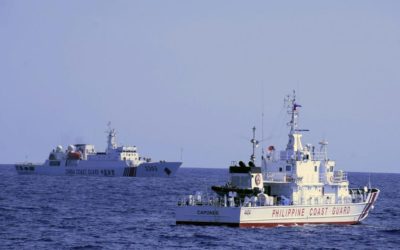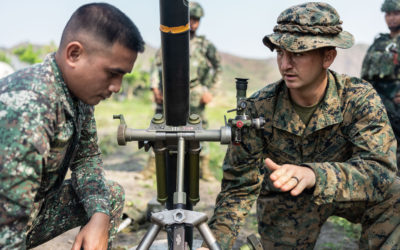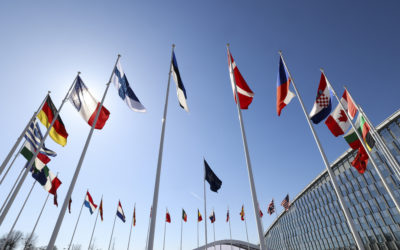Over the past few months, the Philippine Coast Guard (PCG) has expanded its responsibilities beyond its usual task of patrolling the West Philippine Sea, the portion of the South China Sea claimed by Manila. The PCG has now taken on the role of exposing the unlawful activities of both the China Coast Guard (CCG) and alleged Chinese Maritime Militia (CMM). This new responsibility came about following an incident in February, where the CCG used a military-grade laser against a 44-meter PCG vessel that was supporting the resupply mission of the Armed Forces of the Philippines (AFP).
Disinformation and democratic resilience in Taiwan
Disinformation and democratic resilience in Taiwan
Disinformation and democratic resilience in Taiwan
Since 2000, Taiwan has been a top target of misinformation campaigns largely propagated by the Chinese Communist Party and its proxies. China’s primary objective in spreading disinformation is to undermine trust in Taiwan’s democracy and governance. Beijing hopes to convince Taiwanese citizens that the only way to avoid war is to support its plans to ‘peacefully’ unify Taiwan with mainland China.
Taiwan’s robust democracy is underpinned by freedom of speech, press and association—liberties that China seeks to exploit to spread disinformation. In the past few years, numerous CCP-backed campaigns have targeted Taiwan’s commercial news outlets and social media landscape. False stories are often generated by content farms—websites that produce large quantities of low-quality content designed to place highly on search engine results—then republished in Taiwanese media and amplified by state-sponsored accounts.
The CCP’s messaging has evolved over time. Pro-unification rhetoric has lessened, while content purporting to be from local citizens, written in the traditional Chinese characters commonly used in Taiwan and claiming to care about Taiwanese politics and society, has increased. For the CCP, such disinformation remains a cost-effective method to interfere with Taiwanese electoral politics. Ahead of the 2020 presidential election, the CCP spread falsehoods about President Tsai Ing-wen forging her doctoral thesis, leading to the London School of Economics releasing a statement refuting the claims. After the election, Chinese disinformation campaigns tried to discredit Tsai’s victory and claimed it was manipulated by the CIA.
China’s disinformation also aims to increase political polarisation and sow public discord. In 2018, Chinese media outlets amplified criticisms that Taiwanese diplomats were unable to evacuate Taiwanese citizens from Osaka during a typhoon and spread falsehoods that Taiwanese citizens had to claim they were Chinese to be evacuated. During the Covid-19 pandemic, Chinese state-sponsored actors spread disinformation about Taiwan’s Medigen vaccine and tried to discredit officials with fake stories about non-compliance with social distancing rules.
China’s attempts to bring Taiwan closer to the mainland via political co-optation and preferential economics have largely failed, especially after the passing of Hong Kong’s national security law discredited the CCP’s ‘one country, two systems’ framework. Beijing will increasingly rely on what Tsai has called ‘cognitive warfare’—the use of ‘false information to create disturbance in the minds of the people’.
This cognitive warfare is deployed alongside near-daily cyberattacks, drone flights and military exercises around Taiwan. Regular use of these tactics aims to wear down Taiwan’s military and civil reactions, as well as to undermine public trust in Taipei’s ability to protect its citizens. Disguising fake and misleading news as Taiwanese-produced content could reduce Taiwanese citizens’ abilities to discern fact from fiction and weaken social trust in Taiwanese news outlets.
But as China’s efforts have evolved, so too have Taiwan’s responses. Civil-society organisations such as Taiwan FactCheck fact-check public interest issues; Cofacts runs a crowdsourced platform for Line, a popular messaging app; and Doublethink Lab maintains a set of tools to counter conspiracy theories and propaganda. A volunteer-led organisation, FakeNewsCleaner, holds media literacy workshops to help people distinguish misleading information.
Such civil-society initiatives are needed due to the vulnerability of Taiwan’s deregulated commercial media landscape, in which many media shareholders have business interests with mainland China. Introducing laws to penalise those that spread false information will be unlikely to have a deterrent effect due to the length of time it takes to detect malicious actors and prosecute them in Taiwanese courts.
Taiwan’s Ministry of Digital Affairs has also introduced a range of measures to combat disinformation, including the g0v civic hacking program and a bilingual Google assistant chatbot for the Taiwan Centers for Disease Control. One of the most effective approaches continues to be ‘humour over rumour’, in which fake news is reposted on social media with humorous memes, such as a Shiba Inu dog, explaining the facts. Most of these initiatives are based on Taiwan’s Digital Minister Audrey Tang’s belief that technology should strengthen democracy by ensuring open data, transparency and accountability tools.
This approach also recognises that the government can’t counter Chinese state-sponsored disinformation through excessive regulation of Taiwan’s digital landscape or by limiting freedom of expression. Such moves would weaken Taiwan’s democratic credentials, which are critical to demonstrating that the island is a distinct polity from mainland China.
In 2022, public criticism led to the shelving of a law proposed by the Tsai administration to fine internet platforms for failing to remove harmful content. Since the bill would have put government agencies in charge of defining disinformation, it was perceived as an attempt by the government to punish critical content and restrict internet participation. The same criticism was levelled by opposition parties at Tsai for proposing amendments in February this year to the General Mobilization Act. The changes would allow the government to enforce wartime controls on information in the digital, broadcasting and publishing domains, and those found responsible for spreading disinformation could face up to three years in jail.
Beijing’s attempts to economically coerce and militarily intimidate Taiwan to accept unification will continue to be accompanied by attempts to polarise Taiwanese society. Understanding how Taiwan balances robust oversight and regulation, high civic participation and a diverse media will also be critical for other countries seeking to counter Beijing’s interference in democratic processes.
Republished from the Australian Strategic Policy Institute (ASPI) under a Creative Commons license in the Commonwealth of Australia. Read the original article.

Sheryn Lee is a senior lecturer at the Swedish Defence University. A version of this article was published on East Asia Forum.
Related Articles
Balikatan 23 Features New Marine Littoral Force in First Major Joint Exercise
The Marine Corps is ready to use its new formation developed for the island-to-island fight of the future in a major joint exercise in the Indo-Pacific for the first time.
After conducting a service-level exercise in California and Arizona earlier this year, the Marine Corps will now scale that experimentation to the naval and joint force level during exercise Balikatan in the Philippines.
Finland, NATO and the evolving new world order – what small nations know
In the world of geopolitics, great powers make, break and play by their own rules. Smaller states largely have to make do with adjusting to the world as determined by others.
Which is why the decision by Finland – a country of just 5.5 million people, noted for decades as a neutral presence in Europe – to join NATO is so important. It underscores just how the Russian invasion of Ukraine has upset global realities long thought settled, at least by the Western powers.



